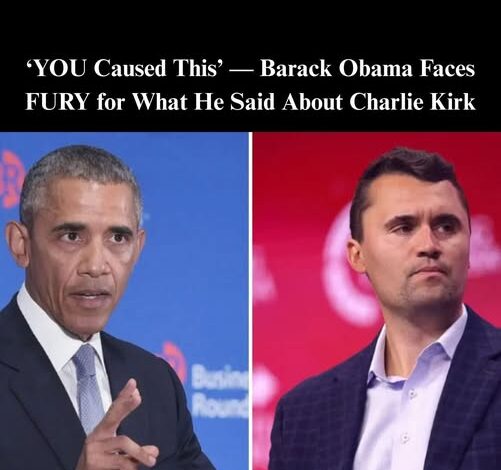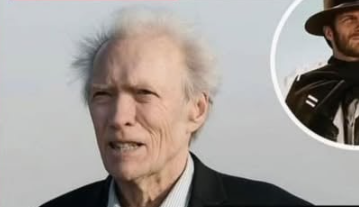
YOU Caused This, Obama Slammed For His Statement On Charlie Kirk
When news of Charlie Kirk’s assassination broke, tributes and statements poured in from across the political spectrum. Among them was a message from former President Barack Obama, who condemned the violence and offered prayers for Kirk’s family. On the surface, the words were measured and predictable: a call for calm, a recognition of tragedy, and an appeal to reject political bloodshed.
But within hours, the response to Obama’s statement had erupted into controversy. To his critics, the former president’s words rang hollow, even offensive, given the broader climate of rhetoric that has surrounded America’s bitter political divides.
Conservative commentators wasted no time in lashing out. Fox Sports and OutKick founder Clay Travis, now a frequent political voice, accused Obama and other Democrats of fueling the very hatred they now claimed to denounce. He argued that for years Democrats had portrayed Trump supporters as “Nazis” and “threats to democracy,” framing them as an existential danger to the country. According to Travis, such rhetoric creates a climate where extremists feel justified in violence, a climate he believes directly influenced the gunman who targeted Kirk. “You can’t spend years demonizing half the country and then act shocked when someone takes it literally,” Travis said during a live segment.
Others on the right echoed the sentiment, suggesting that Obama’s statement was not only tone deaf but hypocritical. For them, the former president was emblematic of a political class that spoke about unity while deepening divides. Social media amplified the backlash, with the hashtag “#YouCausedThis” trending for hours as users blasted Democrats for what they saw as double standards in condemning political violence.
Democrats, for their part, pushed back hard against those accusations. Senator Elizabeth Warren dismissed claims that her party’s rhetoric had any connection to Kirk’s murder. “Why don’t you start with the President?” she said in a pointed reference to Donald Trump. In her view, it was Trump who had consistently ratcheted up the language of division, labeling opponents as enemies of the state and undermining trust in democratic institutions. To Warren and many progressives, pinning the blame on Democrats for the actions of one shooter was a cynical attempt to exploit tragedy for political gain.
Meanwhile, the FBI moved quickly to establish facts on the ground. Investigators confirmed that the Utah shooting was a targeted attack, carried out with precision. The gunman, dressed in dark clothing, had positioned himself on a rooftop near Utah Valley University, where Kirk was speaking at a Q&A session. The fatal shot struck Kirk in the neck, sending the crowd into chaos. Despite the rapid response of medical staff, Kirk was pronounced dead shortly afterward. Authorities later discovered evidence pointing to meticulous planning, and while the investigation is ongoing, they have urged the public to come forward with tips.
Former President Trump, never one to remain silent in moments of political crisis, issued his own statement. He pointed squarely at what he called “radical Left rhetoric,” arguing that Democrats and their media allies had created the hostile climate that led to Kirk’s death. In Trump’s telling, this was not merely an isolated act of violence but the culmination of years of demonization. “They treat patriots like villains and villains like heroes,” he told supporters. “And now we see the deadly consequences.”
The competing narratives illustrate just how sharply polarized the nation remains, even in moments of shared tragedy. One side sees the shooting as the logical extension of anti-Trump rhetoric; the other sees it as the tragic but random act of a radicalized individual, divorced from mainstream politics. What both sides agree on, however, is that the killing of a 31-year-old activist on a college campus marks a chilling escalation.
Charlie Kirk had long been a lightning rod in American politics. As the co-founder of Turning Point USA, he built his reputation by clashing with liberals, rallying young conservatives, and presenting himself as both provocateur and educator. He was adored by supporters for his fearlessness and derided by opponents as a demagogue. His assassination has now pushed him into the realm of political martyrdom, with his legacy certain to be debated for years.
The debate over Obama’s statement, though, reflects something deeper than one man’s death. It speaks to the broader question of responsibility in public life. Do political leaders bear indirect blame when their language inflames passions, even if they never advocate violence directly? Or is violence the sole responsibility of the individual who carries it out, no matter the climate?
Political analysts note that America has been here before. After the 2011 shooting of Representative Gabby Giffords, many accused conservative commentators and Sarah Palin in particular of fostering a hostile environment. After the 2017 congressional baseball practice shooting that injured Republican Whip Steve Scalise, the left faced similar questions about its rhetoric. Each time, both sides seemed more interested in assigning blame than in addressing the toxic conditions that breed extremism. The conversation around Kirk’s murder is following the same trajectory, with the added weight of his prominence as a conservative youth leader.
Behind the politics lies a grieving family. Erika Kirk, Charlie’s widow, has become a central figure in the public mourning. Her quiet displays of faith and resilience have stood in stark contrast to the shouting matches on cable news. While leaders argue over rhetoric, she and the couple’s two children face the unimaginable task of moving forward without a husband and father. For them, the debates over who said what and who fueled which narrative offer little comfort.
Still, the politics cannot be ignored. The shooting occurred at a time when the 2026 elections are already casting long shadows, and every tragedy becomes a potential flashpoint. Obama’s statement was likely intended as a neutral gesture of condolence, but in today’s climate, neutrality is a myth. Every word is parsed, every phrase weaponized. To Kirk’s supporters, his death is proof that conservatives are under attack. To his critics, it is another symptom of a country awash in guns and extremism.
As the FBI continues its investigation, the political world moves on to its next battle. But the controversy over Obama’s remarks lingers, a reminder that in a nation this divided, even mourning cannot escape partisanship. His statement may have been meant as comfort, but to millions it was another spark in a fire that refuses to burn out.
In the end, Charlie Kirk’s assassination will be remembered not only for the violence that ended his life but also for the way it revealed the fault lines of American society. Obama’s words, Trump’s accusations, Warren’s deflections—all are part of the larger narrative of a country struggling to define where rhetoric ends and responsibility begins. And until that question is answered, every tragedy will continue to be a battlefield.




